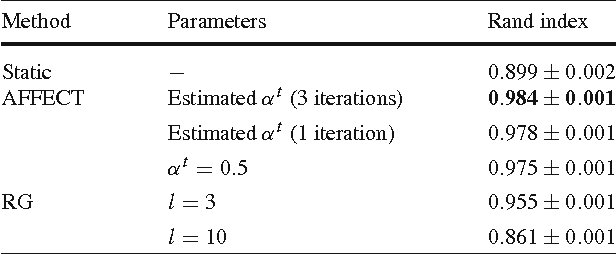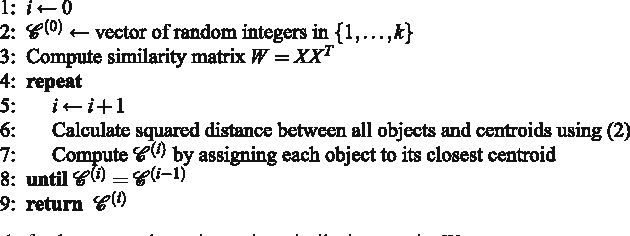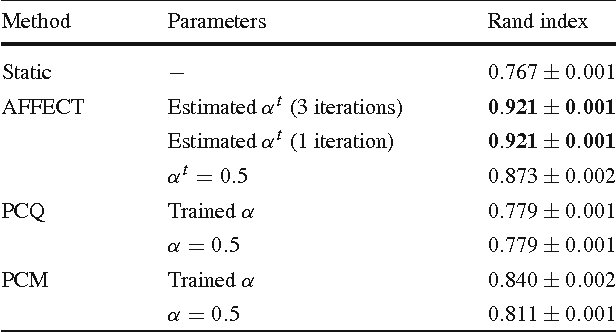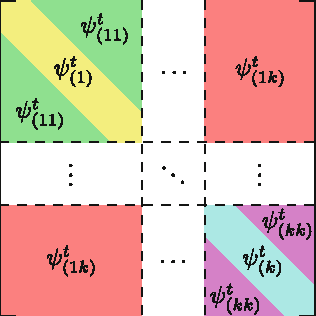Adaptive Evolutionary Clustering
Paper and Code
Feb 19, 2013



In many practical applications of clustering, the objects to be clustered evolve over time, and a clustering result is desired at each time step. In such applications, evolutionary clustering typically outperforms traditional static clustering by producing clustering results that reflect long-term trends while being robust to short-term variations. Several evolutionary clustering algorithms have recently been proposed, often by adding a temporal smoothness penalty to the cost function of a static clustering method. In this paper, we introduce a different approach to evolutionary clustering by accurately tracking the time-varying proximities between objects followed by static clustering. We present an evolutionary clustering framework that adaptively estimates the optimal smoothing parameter using shrinkage estimation, a statistical approach that improves a naive estimate using additional information. The proposed framework can be used to extend a variety of static clustering algorithms, including hierarchical, k-means, and spectral clustering, into evolutionary clustering algorithms. Experiments on synthetic and real data sets indicate that the proposed framework outperforms static clustering and existing evolutionary clustering algorithms in many scenarios.
 Add to Chrome
Add to Chrome Add to Firefox
Add to Firefox Add to Edge
Add to Edge